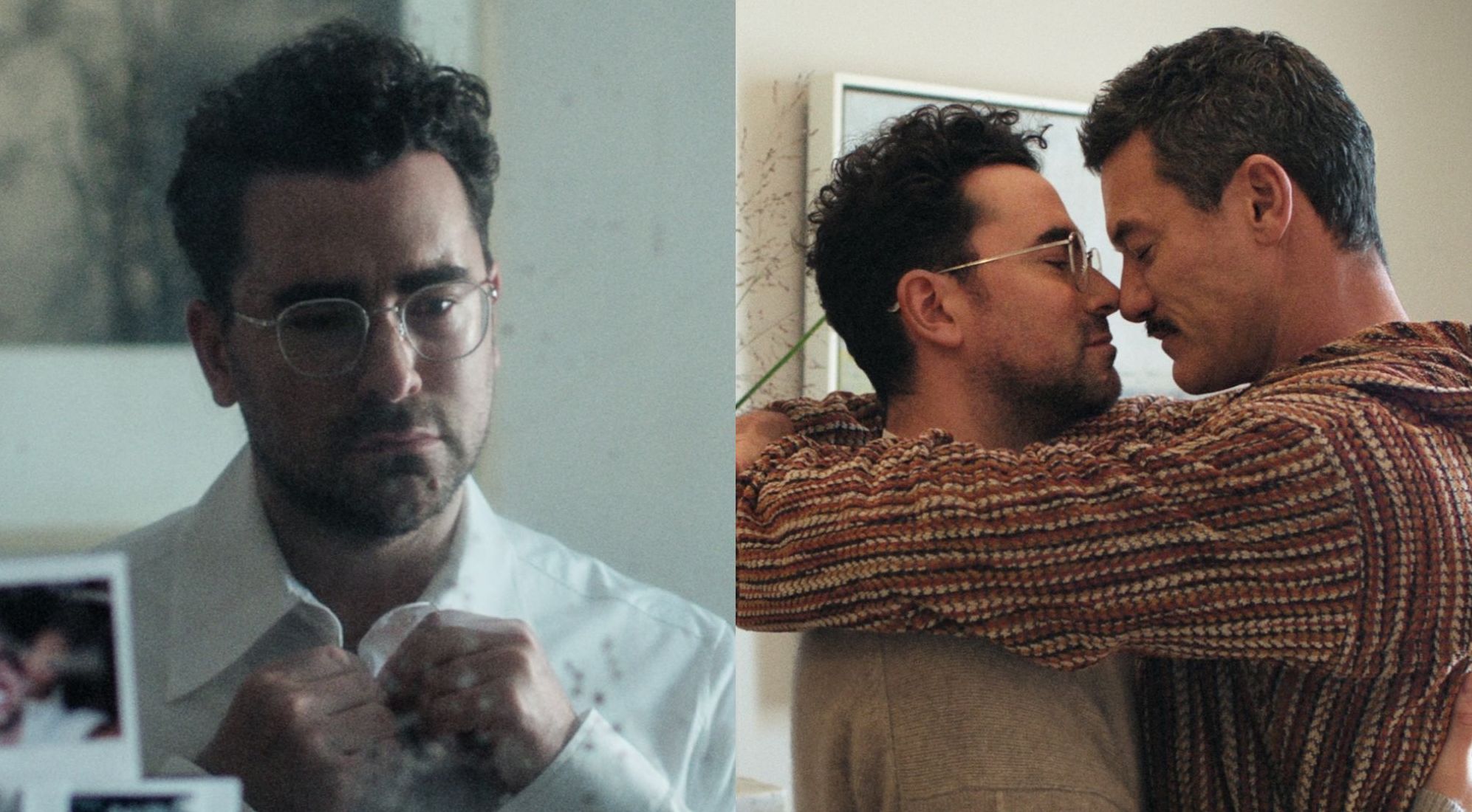Dan Levy has spoken to PinkNews about Good Grief, his debut feature film imbued with true-to-life heartache and an exploration of the complex beauty of chosen family.
After his star-making turn as chaotic pansexual David Rose in the hit series Schitt’s Creek came to an end in April 2020, life took an uncertain turn for Levy.
As he bade an emotional farewell to the defining comedy role, the world was plunged into an unprecedented crisis, in the form of COVID-19 and subsequent lockdowns. Trapped at home, the Canadian actor, producer and writer was left to contemplate what life would look like on the other side of the pandemic.
Levy was also able to ponder what it truly meant to say goodbye to both the fictional world of Schitt’s Creek and real life in one fell swoop.
The Emmy-Award-winning star may have been recovering from a nasty bout of the flu and battling jet lag, but he was more than happy to talk about his new film.
“There was a moment when I didn’t know if I would [make it], with all the strikes happening,” he says, beaming. “It’s a delight.”
Good Grief is written, produced and directed by Levy, who also stars as house-husband and retired artist Marc, living happily with his husband in London. But one fateful Christmas, his life is irreparably changed when his partner of 15 years, Oliver, played by Luke Evans, dies.
What follows is a look at the messiness of grief, finding solace in friendship and wading through one of humanity’s most difficult challenges: starting afresh against all the odds.
Although it’s not Levy’s first time producing and writing on set (he famously worked alongside his father, American Pie star Eugene on Schitt’s Creek), Good Grief looks set to be his most personal project yet.
Reflecting on the lost years of the pandemic, Levy says: “The whole COVID-19 experience, the shift and the change in our lives, almost put this weight on our shoulders. We were grieving a life we used to know, a freedom we used to have.”
He traces the source of Good Grief back to the middle of the pandemic, the festive period after the sudden loss of his grandmother, earlier telling journalists that his response to her death was somewhat delayed.
“The suddenness of her death came as a shock to us all, but it wasn’t until a few months had passed that I really began to feel the void of her absence. I wondered why it took so long to hit me,” he said.
Morbidly fascinated by the disconcerting, and sometimes illogical, ways our minds cope with loss, and eager to explore the importance of friendship in the lives of LGBTQ+ people, Levy was inspired to put pen to paper.
“As a writer, if I don’t feel it physically, I have to put it somewhere,” he continues. “I think I wrote that into the movie. Where does it go if not into art?
“I started sitting with this concept: figuring out what grief meant to me in relation to friendship, and thought that it could really work [through] a story about a man reconciling his partner’s loss, and what that does to this group of friends.”
Marc’s friendship group consists of his boisterous yet commitment-phobic bestie Sophie (Ruth Negga), and his ex-boyfriend Thomas (Himesh Patel), who is still healing from their failed relationship.
The trio embark on a soul-searching trip to Paris that reveals some hard truths all three need to face.
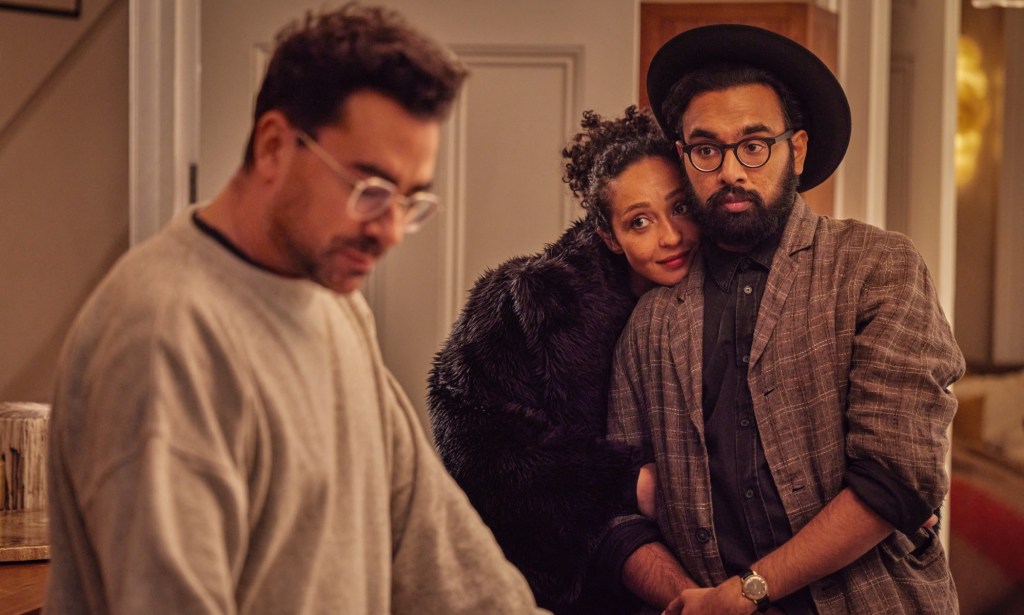
What’s achingly clear for viewers is that, although this is a meditation on grief, it’s done with a uniquely Levy twist, filled with moments of queer joy, tender love and plenty of laugh-out loud high jinks.
For Levy, the experience of writing this “vulnerable” debut feature was “incredibly cathartic”. By putting into words why he felt he was going about grief all wrong, the star explores one of the most fundamental and inevitable parts of the human experience.
“I wasn’t getting as upset as I knew I should and even though my head was terrifically sad, in making this movie I showed the gravity of what that grief meant to me. The beauty of sadness and tragedy is it gives people in the arts something to create.”
Although Levy was using Good Grief as a conduit to process familial loss, the film focuses on the rupture that the death of a romantic partner has on Marc’s life.
“I have been single for quite some time but I have friends who jump from relationship to relationship to relationship,” Levy says. “As a single person, I have my own examination to do in terms of why that’s the case, but I look at [others] and think: ‘This person [has] never had a moment alone’.
“To me, that was a compelling place to start.”
Marc – whose life had orbited that of his larger-than-life, acclaimed-author husband – is forced into an unsteady solitude that compels him to figure out what he wants from life.
As for the part of Oliver, it was perhaps the toughest gig on set, requiring the actor to compress 15 years of love into 15 minutes of screen time. Levy did not underestimate the importance of casting the right person.
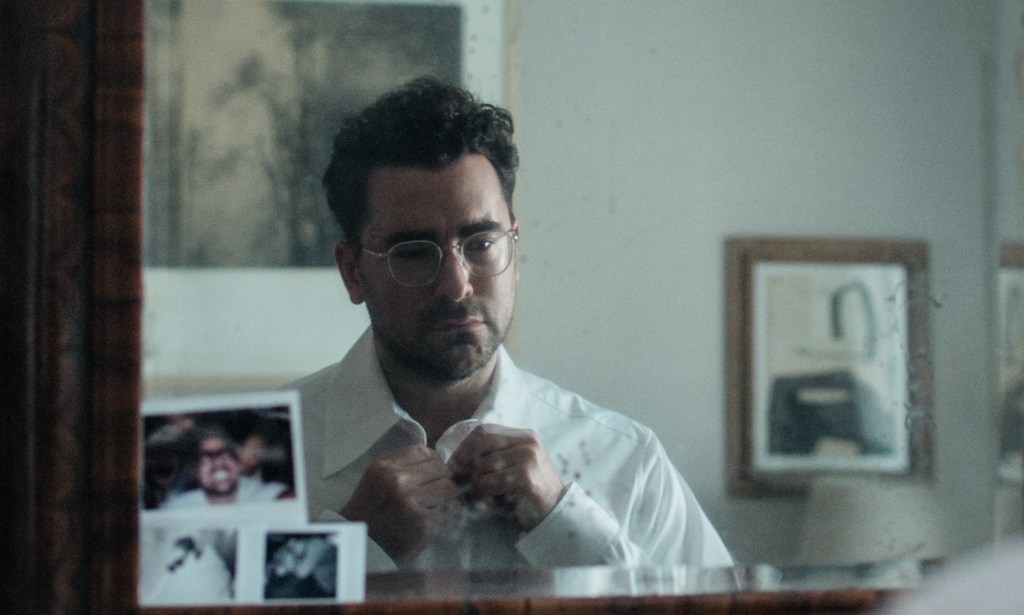
“The audience needs to be reminded of him and his warmth and his charm throughout the rest of the film,” Levy explains. “He carries such a weight in the movie.”
What better person than Welsh actor and singer Evans, who rose to prominence in 2010’s Clash of the Titans before appearing in The Hobbit franchise and Beauty and the Beast.
“The minute Luke was interested, we met and discussed it,” Levy says. “He had such a personal connection to the script. He has that inherent charisma, he takes up so much space, he’s such a large man. He’s so charming and warm and embracing of everybody.
“I knew he had the power to hold people’s hearts through the whole film.”
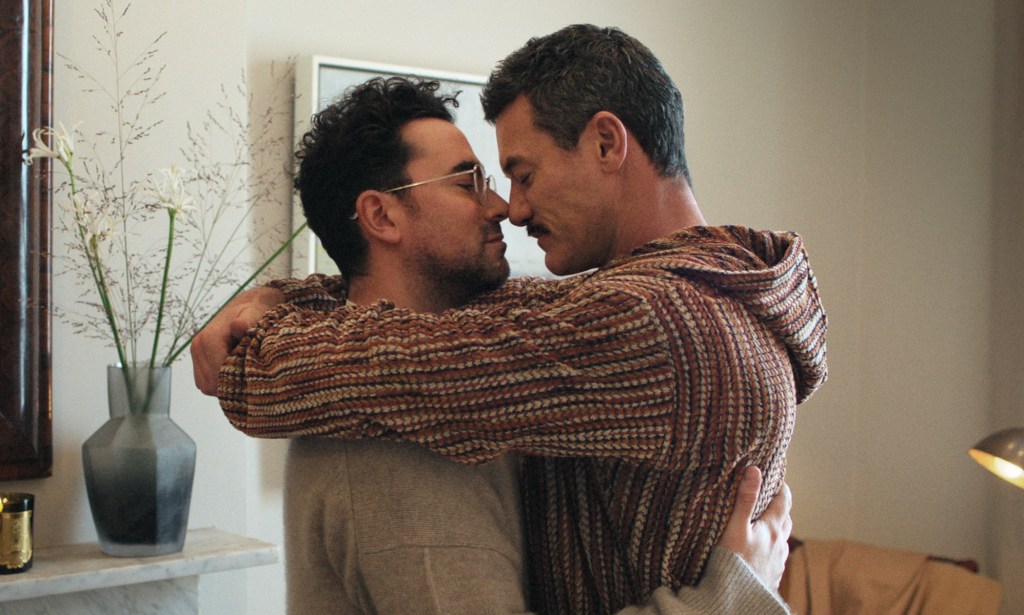
Good Grief lives and dies on the chemistry between the cast, and the audience’s belief in their pain and overcoming it. With this in mind, Levy organised a weekend trip to a farmhouse in Oxfordshire to bond with Negga, Patel and Evans before they stepped on to the set.
“I thought it was important that we have that intimacy before we started because you can feel it,” he explains.
“Often, actors aren’t afforded that kind of time. Sometimes you just walk on set, and it’s like: ‘Well, this is the person playing my husband, nice to meet you’.”
Evenings were spent swapping stories “about our lives and our relationship to loss and love”, and listening to Evans playing cuts of his new album, A Song for You, before its release.
“I look back on those days so fondly,” Levy continues, revealing that he’s stayed in touch with the cast since shooting wrapped, from bonding with Patel’s family to making sure he catches Evans’ latest West End show, Backstairs Billy.
Levy’s fictional chosen family have become dear friends. And he hopes, just as he has, LGBTQ+ people watching Good Grief can find their own consolation in the film by seeing themselves on screen.
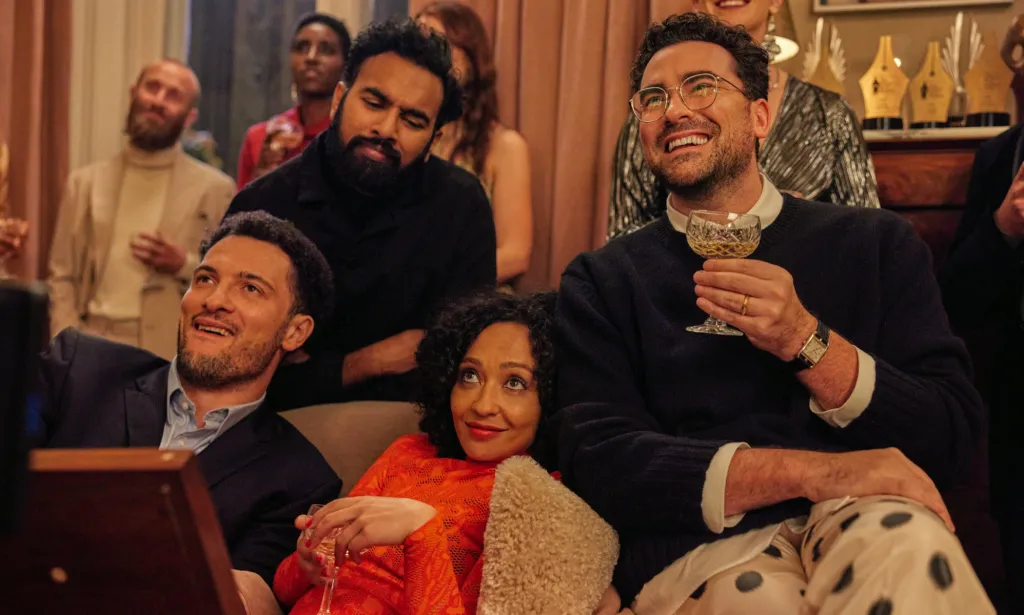
“Growing up, I didn’t have a lot of reference points. I didn’t have a lot of people or movies to turn to, where I could see myself in a normalised way,” he says, “and that’s what I love to [give others].
“I love to write stories about my life, the lives of my friends, the lives of the people I know, as truthfully as I possibly can, so that someone at home, whom I’ve never met, but has shared a similar path in life, might be comforted in knowing there is a point of connection between [us], that they exist now in the world for people to see.”
He goes on to say: “You want to make the movie as good as it can possibly be. It’s nerve-wracking [but] it means a lot to me. Anytime you put something out into the world, you’re trembling with both nerves and excitement. I’m very proud of it.”
Good Grief arrives on Netflix on 4 January.
